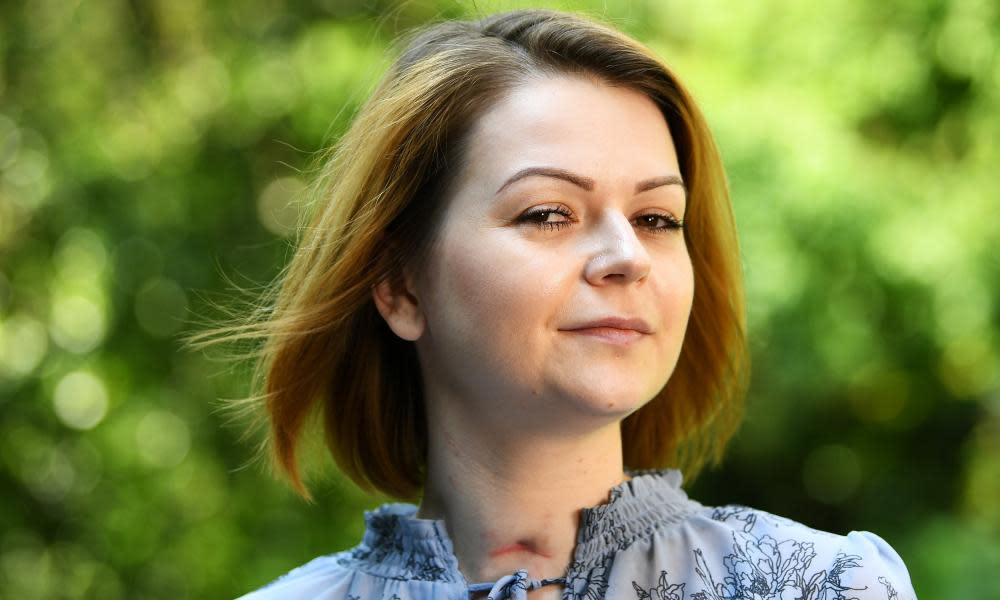Yulia Skripal delivered a coded message and it spoke volumes

The Russian authorities’ response to Yulia Skripal’s televised statement, recorded in great secrecy under the watchful eye of her British government minders, was predictable. The Kremlin said it might have been made under pressure, and there was no reason to trust it. Moreover, according to the Russian embassy, the phrasing suggested that the text had been written by a native English speaker and translated into Russian.
I had a very different impression. I am old enough to have watched stage-managed “confessions” on Soviet television, and this was quite different. Yulia appeared relaxed. She deviated at times from the written version of her Russian text, and while her somewhat wooden intonation clearly indicated she was making a statement rather than improvising, her expression at no point suggested she was saying things she did not believe.
The best way to dispel all doubts, of course, would be to stage a press conference or use an interviewer. But her reluctance to do that is understandable, in the light of what was perhaps the most interesting sentence in her statement: “In the longer term, I hope to return home to my country.”
Any interviewer would press her to speculate about who poisoned her, and why – and yet her ability to return to Russia in safety will depend on her keeping her mouth firmly shut about any suspicions she may have. Her continued polite refusal to meet anyone from the Russian embassy, plus her effusive thanks for the care she has been given in the UK, gives a fair impression of whom she trusts more at this moment.
The attempted assassination of Yulia and her father remains a mystery, but there is little reason to suspect any perpetrator other than Russia, with its history of extrajudicial killings and of lying to cover things up. Just as Yulia’s statement was broadcast, international investigators published hard evidence that the BUK missile that shot down Malaysian Airlines flight MH17 over Ukraine in 2014 came from a specific, named missile brigade inside Russia. Meanwhile the Russians have come up with umpteen implausible alternative explanations, flying a dozen ragged kites to distract everyone from the obvious truth. The Russians’ claims regarding the Skripals are no more convincing.
That said, however, the UK authorities have not exactly excelled in providing timely or consistent evidence. Official information has been provided in bursts, and has often smacked of stage-management and over-zealous PR, intended as belated justification for the initial rush to expel diplomats. The theatrical spectacle of specialists in elaborate, yellow, chemical protection suits still busy “securing” sites around Salisbury, while citizens in ordinary clothes stroll around them, is bizarre. No one has satisfactorily explained how novichok, claimed to be one of the most lethal weapons-grade nerve agents, has affected only three people, and not even its intended victims were killed by it. The drip-feed of official information has rarely provided real insight, but has almost always coincided with ministers demanding more cash for defence and security.
There can be no one in Britain, surely, who feels they have been told the whole truth about the Skripal case by the British government. Even my own near-certainty that the Russians were behind the attack rests more on intuition and precedent than on incontestable facts.
Beyond the human story of the Skripals, their recovery and future plans, lies the bigger question of what to do about Russia. There is little doubt that we are dealing with a Kremlin, under Vladimir Putin, that feels it can act with impunity around the world. The fact that Putin does so in part because he believes the Americans have also done so for decades does not excuse such behaviour. Whether the Skripal poisonings were personally ordered by Putin, or simply carried out by those who feel empowered by the hyperactive patriotism nurtured in today’s Russia, will in all likelihood never be known.
Which means the west has a choice: continue to respond to every Russian outrage by ratcheting up the hysteria and the pressure (none of which, though it might hurt Russia, will change Putin’s policies); or accept the fact that for the next six years we have no choice but to work with him, and that there are many areas of mutual interest on which we could collaborate. All conflicts end either in victory or in some sort of agreement. The west is not going to “beat” Putin, but we can at least try to make the next six years a little less dangerous.
• Angus Roxburgh is the author of Moscow Calling: Memoirs of a Foreign Correspondent, and was an adviser to the Russian government between 2006 and 2009

 Yahoo News
Yahoo News 
